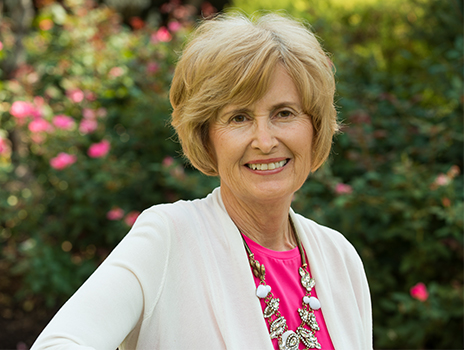- Home
- News Room
- Patient Stories Search Page
- Second Opinion Offers Myeloma Patient More Options
August 13, 2019
When Chris Frasco was diagnosed with multiple myeloma 8 years ago, her doctor said her condition could not be cured but was treatable. He provided a plan of attack and then told her she should feel free to seek a second opinion elsewhere at any time.
Chris, who lives in Wichita, says she knew she was in good hands with her hematologist/oncologist Dennis F. Moore Jr., MD, at the Cancer Center of Kansas in Wichita. She moved forward with Dr. Moore’s prescribed treatment of intensive chemotherapy followed by 2 consecutive autologous stem cell transplants.
At the time, Dr. Moore said back-to-back transplants offered Chris the best treatment option and a better chance at a longer remission. That was the case for a number of months. Then a protein in Chris’ blood became elevated, indicating her treatment was losing its effectiveness. She began taking a targeted chemotherapy drug, which helped manage her disease for another year.
I had done enough research to know that the cancer eventually figures out the treatment and you have to change course. –Chris Frasco
Multiple myeloma patient
Second opinion for myeloma treatment
Eventually, the targeted therapy stopped working, and Chris said it was time to look for expertise outside the Wichita area. She turned to The University of Kansas Cancer Center in Kansas City and Joseph McGuirk, DO, medical director of blood and marrow transplant, for a second opinion.
“I had done enough research to know that the cancer eventually figures out the treatment and you have to change course,” she says, adding that Dr. Moore fully supported her decision.
“Certainly, unusual or complex cancers benefit from second opinions, and we definitely benefit from discussion with collaborating specialists,” Dr. Moore says. “In Chris’ case, it was particularly valuable and helped me make the determination to proceed with a third transplant in Wichita.”
No place like home
Chris, who was 63 when she first visited The University of Kansas Cancer Center in January 2013, sought Dr. McGuirk’s expertise because few people are candidates for a 3rd stem cell transplant. After a thorough exam and assessment, and collaboration with Dr. Moore, Dr. McGuirk determined Chris’ good health qualified her for a 3rd transplant.
“This type of collaboration is essential because these patients have extraordinarily, almost always, life-threatening illnesses that require prompt and very complex care,” Dr. McGuirk explains. “Physicians around the Kansas City metro area and throughout the state of Kansas are our colleagues and partners. It’s absolutely incumbent upon us to be available to our referring physician colleagues for questions and concerns, and when they refer patients to us, to return those patients back to their care as soon as we can.”
With Dr. McGuirk’s blessing, Chris returned to Wichita, where Dr. Moore performed her transplant. In addition to seeing Dr. Moore, Chris continues to visit the The University of Kansas Cancer Center to see Dr. McGuirk and Brea Lipe, MD, for her posttransplant follow-up care.
“I wanted to be in Wichita for the actual transplant,” Chris says. “Now, Dr. Moore and Dr. Lipe confer regularly on what my next treatment will be. I’ve been very fortunate. My cancer journey has been manageable, and I’ve lived a very normal life.”
Chris’ life involves 4 adult children, 3 of whom work in healthcare, and 4 grandchildren under age 7. The achievement of which she is most proud, and rightly so, is that during her treatment for multiple myeloma she completed her bachelor’s degree in business at Baker University.
“I walked across the stage to receive my diploma the day after my last chemo treatment and a week prior to my third stem cell transplant,” she says with pride. “As long as there is treatment for my disease, I will do whatever it takes. Quitting is not an option.”
Your first choice for a second opinion.
Having confidence in your diagnosis and treatment is critical when you're faced with the possibility of cancer. Call 913-588-1227 for a second opinion.
As with all treatments, individual patient results vary. It is important to discuss your treatment options with your healthcare provider.
